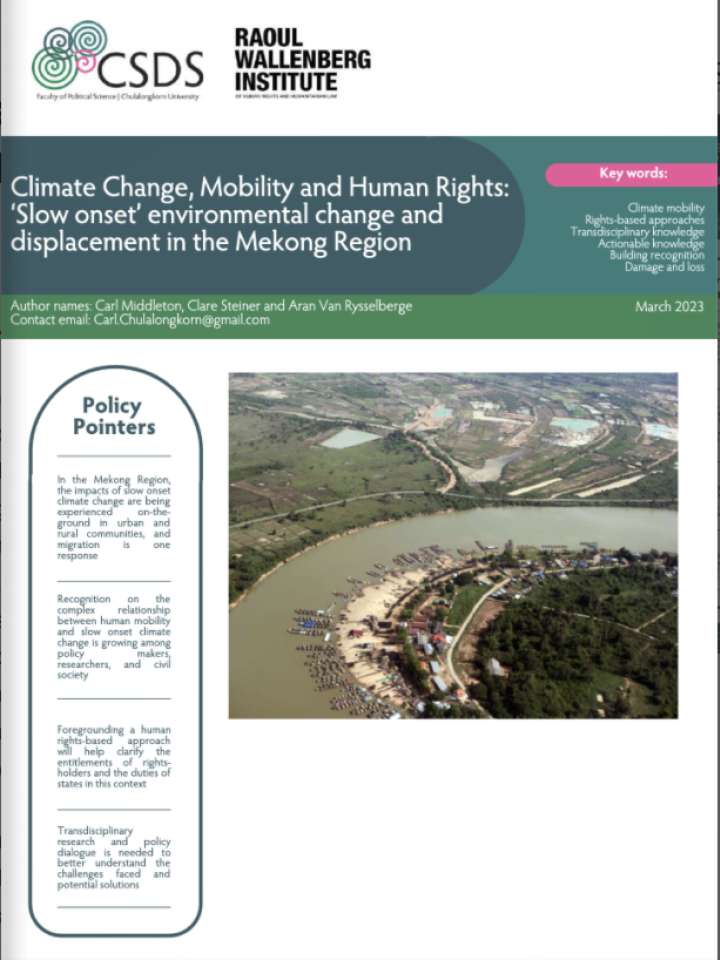Climate change, mobility and human rights: ‘Slow-onset’ environmental change and displacement in the Mekong region
This policy brief examines the connections between climate change, peoples’ mobility and human rights in the Mekong Region. A particular focus is on the slow environmental change dimensions of climate change, such as sea level rise and changing seasonal weather patterns, that are shaping peoples’ mobility in less recognized ways. Slow onset processes introduce significant complexity, given that any decision to migrate intersects with pre-existing conditions and other ongoing economic and social development trends.
Key findings of the publication include:
- In the Mekong Region, the impacts of slow onset climate change are being experienced on-the-and ground in urban and rural communities, and migration is one response;
- Recognition on the complex relationship between human mobility and slow onset climate change is growing among policy makers, researchers, and civil society;
- Foregrounding a human rights-based approach will help clarify the entitlements of rights-holders and the duties of states in this context.
Explore further
